Having endured a myriad of complex challenges throughout its history, Korea may be the ultimate cauldron of dynamic and divergent emotions. The country’s unique history and stories are now being told through various channels, gaining traction and the attention of worldwide audiences.
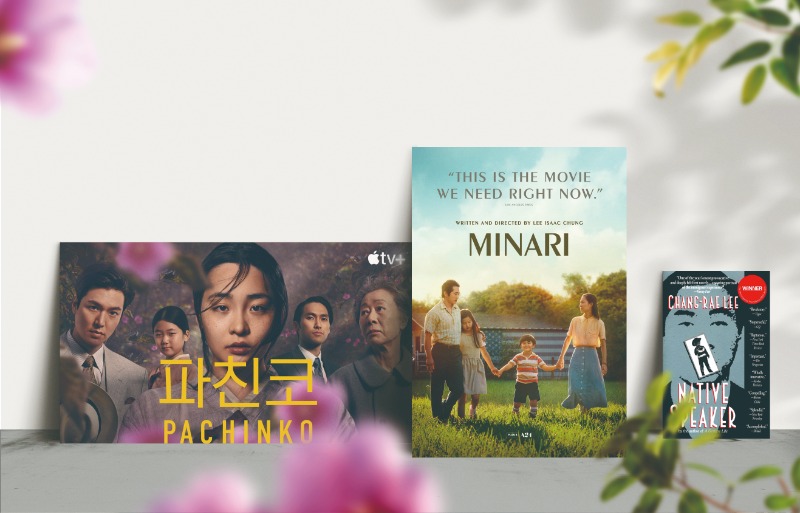
“Pachinko” (2022) ⓒApple TV+ / “Minari” (2020) ⓒA24 / “Native Speaker” (1995) ⓒRiverhead Books
Director Wayne Wang’s 2019 FILM “Coming Home Again” is an adaptation of an autobiographical essay published 24 years earlier in the New Yorker magazine. Memories arise as the protagonist, brought from Korea to the United States by his immigrant parents, watches over his cancer-stricken mother.
The essay was written by novelist Lee Chang-rae. He describes the hardships his mother must have experienced as a stranger in another country. Healso remembers his mother preparing short ribs, making sure that the bone remained attached to the meat “by the barest opaqueof tendon.” She prepared fancy dishes but never asked her son to help. She wanted him to devote himself to his studies and grow up to be a valuable member of society, respected and recognized by all.
These wishes are familiar. They fit the stereotype of hardworking Asians in the United States that often comes to mind when Korean immigrants are mentioned. Indeed, they remind us of the grandmother in Lee Isaac Chung’s movie “Minari” (2020). She is the typical Korean mother who does not give up easily, is closely attached to her children, and has a strong will to live.
Just as his mother had wished, Lee Chang-rae achieved success and recognition. He graduated from Yale University, worked as an equity analyst on Wall Street, and gained instant acclaim with his first novel, “Native Speaker.” The book garnered six major U.S. literary awards, including the Hemingway Foundation/PEN Award and the American Book Award. Lee is also considered a strong candidate for the Nobel Prize in Literature. Yet, he is not that well known outside literary circles, probably because the influence of popular culture, through audiovisual media, is greater than that of writing.In that sense, the influence and significance of director Lee Isaac Chung’s “Minari” and writer Lee Min-jin’s “Pachinko” are enormous. “Minari” reaped numerous awards, including Youn Yuh-jung’s Oscar for Best Supporting Actress, demonstrating that the barrier erected in the elitist mainstream culture could be overcome by a Korean-language film starring Korean actors.
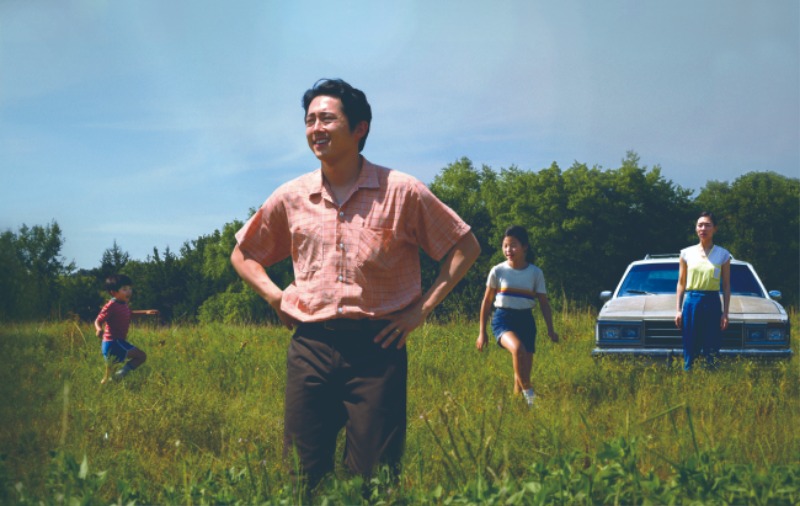
The film “Minari” depicts the hardships faced by Korean immigrants chasing the American dream. Jacob, the father, starts his own farm and struggles to convince his family that moving to the rural U.S. was a good decision.
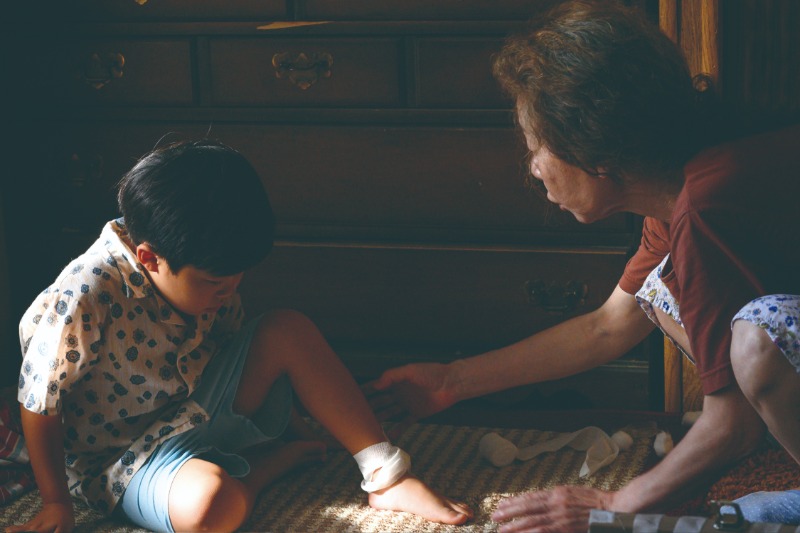
The working couple needed someone to take care of their children and sought help from Sunja, their grandmother, who is far from a typical warm, gracious family matriarch. The mischievous son David does not get along with her.
THE MOST KOREAN STORY
“Minari” is not only the story of Korean immigrants, but a work that points to the core of America, a nation of immigrants. In the 1980s, a period of economic and political turbulence, the family in “Minari” leaves the homeland to start a new life in the United States. The father and mother are portrayed as tough characters who struggle to adapt to life in an unfamiliar land. The image of these immigrants is completely different from the comical and humorous depiction of Koreans in the Canadian sitcom “Kim’s Convenience.”
The family in “Minari” settled in rural Arkansas. While there is no display of racial discrimi-nation, nobody seems particularly interested in where they came from either. The young couple, in a sense, symbolize the spirit and identity of the nation of immigrants; as long as you have hopes and dreams and are passionate and young at heart, then opportunities and possibilities will emerge in the United States.
The success of “Minari” in 2021 was partly built upon the achievement of director Bong Joon-ho the previous year. His film “Parasite” proved to the world that Korean stories are sufficiently dynamic and sophisticated by winning the Palme d’Or at the Cannes Film Festival and becoming the first foreign film to win the Best Picture Award at the Oscars. When, a year later, “Minari” crossed the threshold of the United States once more with a Korean story, people had greater appreciation for the story and paid more attention rather than brushing off Bong’s success as a coincidence.
“Minari” sparked the initial interest in Youn Yuh-jung and positive curiosity about Korean immigrants, which culminated with the record-breaking smash hit “Squid Game,” the most successful and talked about show on Netflix in 2021. Just one year after director Bong Joon-ho appealed to English-speaking audiences to overcome the one-inch subtitle barrier, a Korean TV show produced in Korean, starring Korean actors and directed by a Korean positioned itself at the center of the world’s storytelling industry.
The key to the success of “Squid Game” lies in what is authentically Korean. As a nation, Korea is as vibrant as it is contradictory, with over 10 million out of its 50-million population living in metropolitan Seoul. When the whole world was isolated during the COVID-19 pandemic, everyone could relate to the story about the 45.6 billion-won prize money and the different desires and conflicts surrounding it. The bizarre children’s games introduced in the competition also garnered considerable attention, providing yet more evidence that creative content and provocative narratives can pique people’s interest in Korean culture and society.
STREAMING PLATFORMS
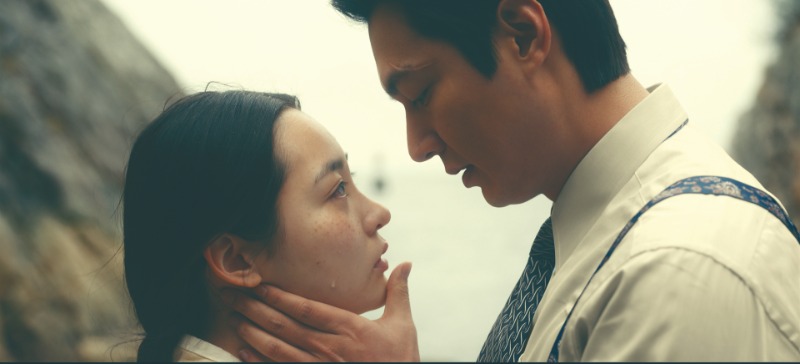
“Pachinko” chronicles the dreams and hopes of four generations of an immigrant Korean family trying to fit into Japanese society. Hansu and Sunja have a secret relationship, but Sunja leaves him when she finds out he has a family.
ⓒApple TV+

The arc of Sunja’s life is traced as a portrayal of the grueling work and sacrifice that Korean women endured during decades of Japanese colonization.
ⓒApple TV+
We may do well to take notice of the changes in the online streaming platform market, which has grown rapidly during the pandemic. In the course of Netflix’s success, Korean stories and narratives helped it to secure a higher market share. The search has begun for the right Korean stories to produce competitive content on OTT platforms. It is no happenstance that Apple TV+ adapted Lee Min-jin’s novel “Pachinko” to the small screen.
Interestingly, the successful source material is not the author’s autobiographical story as a 1.5 generation immigrant, but deals with fictional stories and the history of Korea under Japanese colonial rule, dating back to the beginning of the 20th century. The works of Cannes-winning directors Park Chan-wook and Bong Joon-ho, as well as “Squid Game” and “Hellbound” (2021), are fictional works set in the present day. However, “Pachinko” deals with Korea and Japan between the 1910s and 1980s, encompassing the Japanese occupation period, which can still be said to be the most sensitive period in the countries’ diplomatic relations.
Noted as one of former U.S. President Barack Obama’s must-read books on vacation, “Pachinko” went beyond a simple story dealing with the Zainichi, or Korean immigrants living in Japan, in the 20th century. As a TV series, the travails of immigrants became more illuminated. It displayed the foundations and roots of life, the pain and suffering immigrants undergo in their diasporic life, and the love that blossomed, weathering all storms. “Pachinko” shows the true meaning of hometown not merely as a birthplace but a place where you happily usher in the future and the next generation.Korean immigrants are rightful citizens of the country where they reside. But their emotional and historical roots and family ties obviously remain in hometowns left behind. Korean immigrant writers, directors and producers are portraying the complex emotions and difficult history with their specific dialogues and perspectives.
Korean narratives are compelling because the concrete stories hold vivid versions of our contemporary lives as well as humankind’s universal desires.
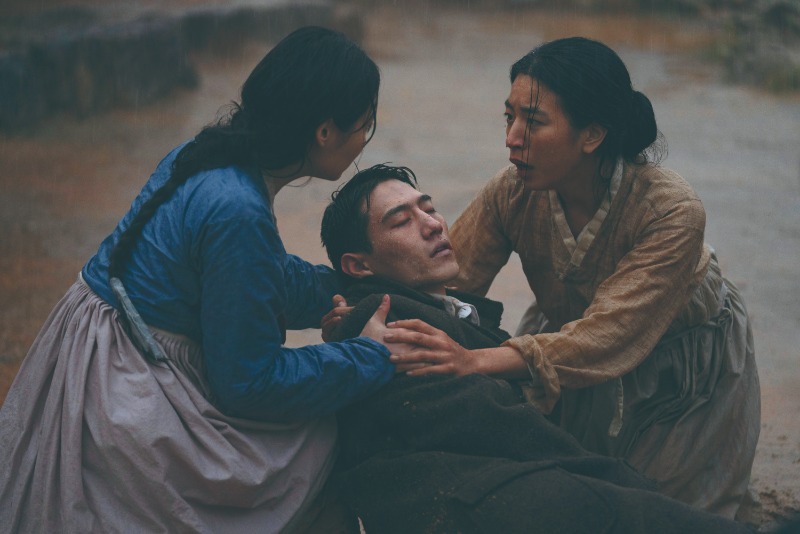
Pyeongyang-born pastor Isak falls ill on his way to Japan but Sunja and her mother nurse him back to health. After splitting from Hansu, Sunja marries Isak and moves to Japan with him.
ⓒApple TV+